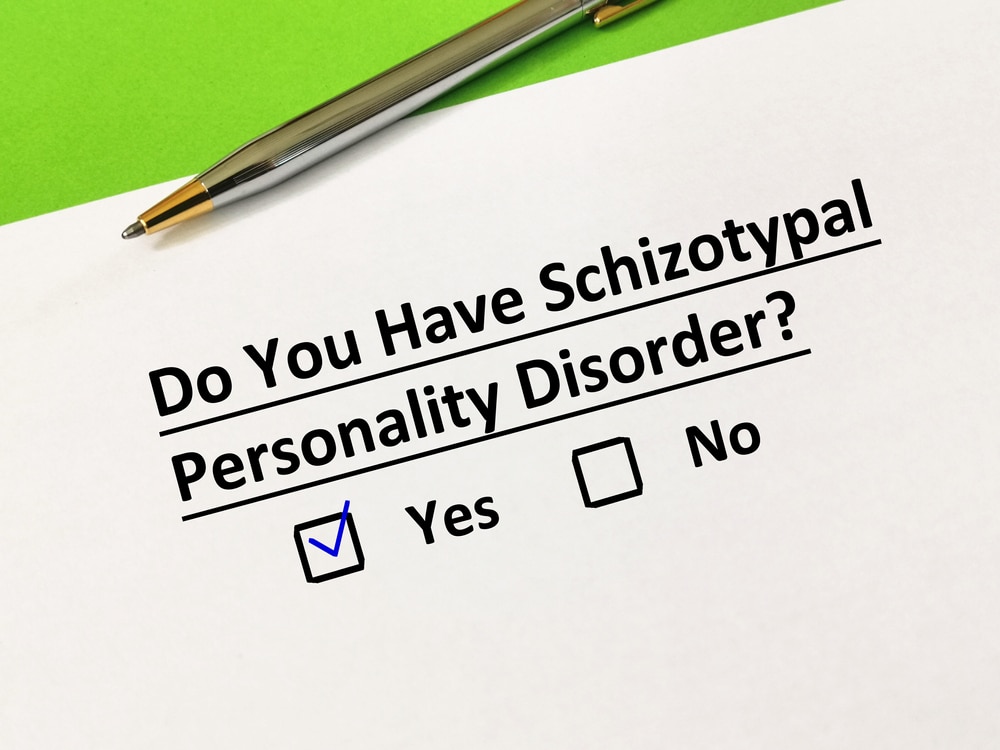Schizotypal Personality Disorder: What Is It?
People with schizotypal personality disorders tend to behave oddly or eccentrically, with few or no close relationships. Often, they don’t realize how their actions affect other people or how their connections develop. They might also misjudge the intentions and actions of others, leading to a strong mistrust of them.
People with schizotypal personality disorder have strange views and may have difficulty responding to social cues, which may cause considerable anxiety and a tendency to avoid social situations.
A schizotypal personality disorder is often identified in the early stages of adulthood and is likely to persist throughout life. However, medication and counseling can help with symptoms.
Causes of Schizotypal Personality Disorder
A schizotypal personality disorder may have genetic causes. Early adulthood is when it typically begins, and relatives of those with schizophrenia are more likely to experience it.
A person’s personality develops during childhood and adolescence and is probably influenced by their temperament, responses to life events, relationships, and coping mechanisms.
Schizotypal Personality Disorder Symptoms
- Tendency to misread reality or have erroneous perceptions (for example, mistaking noises for voices).
- Have strange beliefs or magical thinking? (for example, being overly superstitious or thinking of themselves as psychic).
- React rarely or seem emotionless.
- Be uneasy or worried in social circumstances due to their suspicion of others.
- Have few friends.
- When interacting with others, I tend to be stiff and awkward.
- Come across as emotionally detached, aloof, or chilly.
- Dress, speak, or act unusually or unconventionally.
- Be wary and anxious.
- Be extremely uncomfortable with affection.
- Become fixated on fantasies and daydreams.
Diagnosis
People with a schizotypal personality disorder may seek treatment from their primary care doctor for other symptoms such as anxiety, depression, or difficulty coping with frustration. They may also seek treatment for drug abuse.
Your primary care doctor may send you to a mental health expert for further examination after a physical exam to rule out other medical conditions.
A schizotypal personality disorder is often diagnosed based on:
- In-depth discussion of your symptoms
- Your personal and medical history
- Symptoms are specified in the American Psychiatric Association’s Diagnostic and Statistical Manual of Mental Disorders (DSM-5)
Schizotypal Personality Disorder Treatment
Patients with schizotypal personality disorder rarely receive treatment for the disorder itself. When they visit a doctor, it’s usually for a related condition, such as sadness or anxiety. Therapy can include:
Psychotherapy
By developing a trusting relationship with a therapist, psychotherapy may aid individuals with schizotypal personality disorder in learning to trust others also coping mechanisms.
Psychotherapy might consist of:
- Cognitive-behavioral therapy, learning specific social skills, confronting negative thought patterns, and changing problematic behaviors are all part of CBT.
- Encouragement and the development of coping mechanisms comprise supportive treatment.
- Family therapy involving family members may enhance communication, trust, and the family’s capacity for cooperation.
Medication
Patients with schizotypal personality disorder who suffer from anxiety or depression may also use medication. Despite its use for treating personality disorders, it is not the primary treatment.
Resource (webmd.com)







